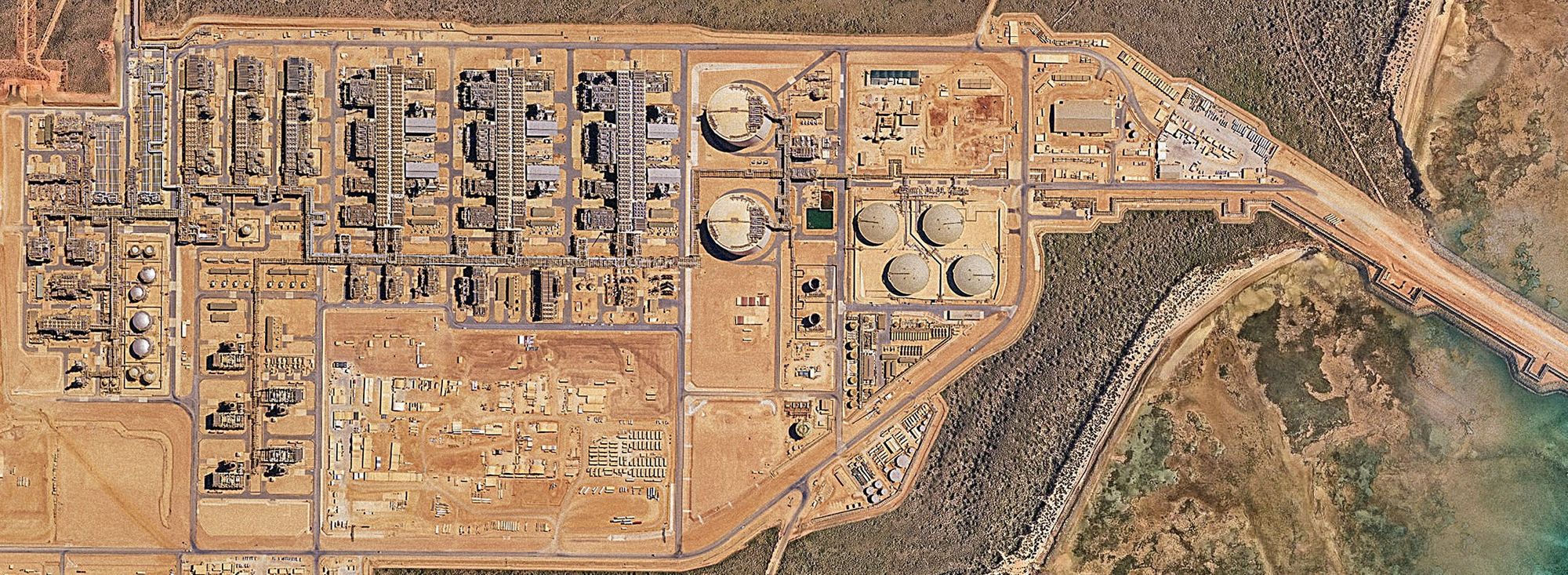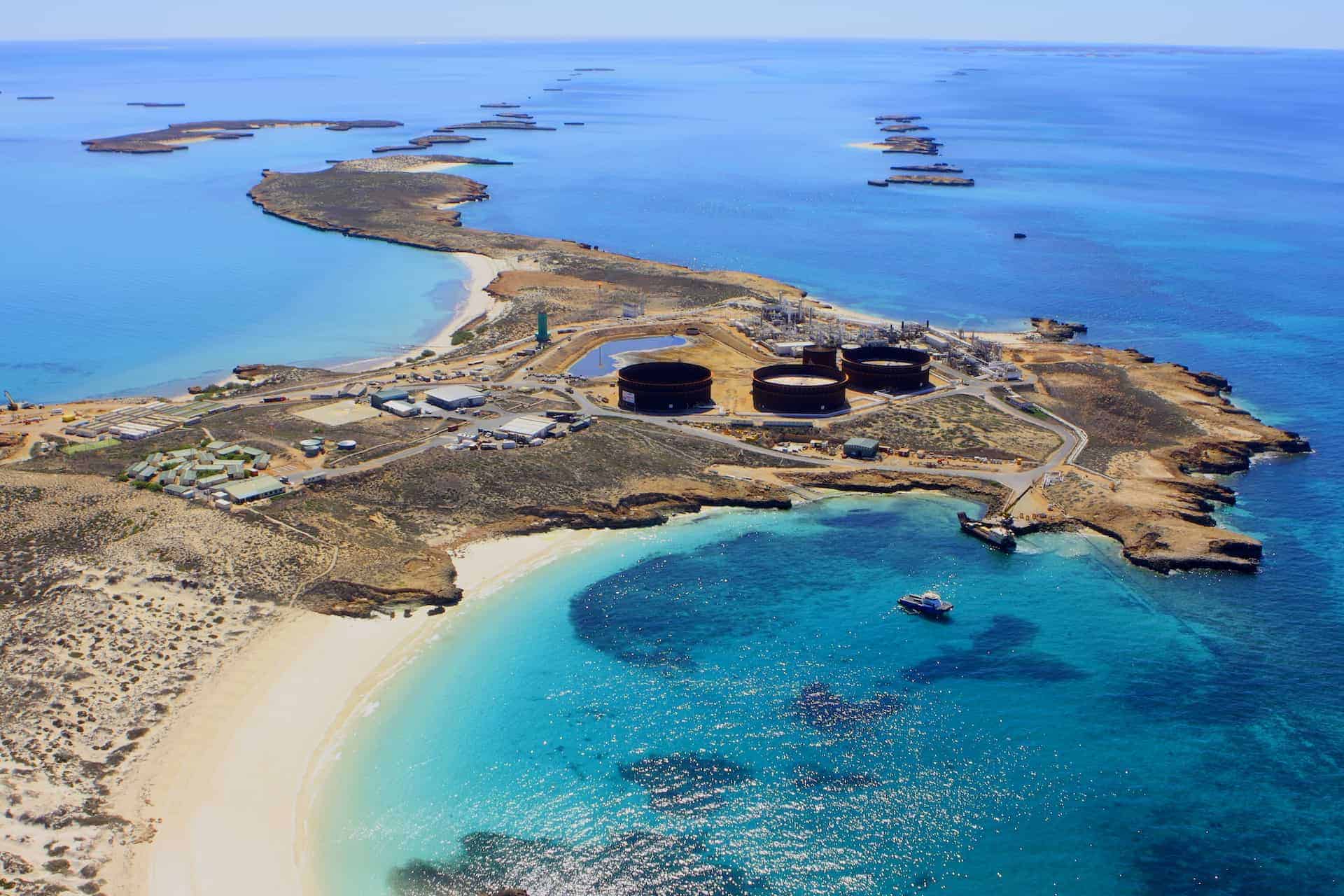Five reasons Australia's green hydrogen dream has foundered
Several big green hydrogen projects have been shelved. An expert explains why Australia’s sky-high ambition for the industry is struggling to reach fruition.
Safety regulators knew nothing of cracked pressure vessels at Chevron's Gorgon LNG plant until alerted by media reports and now plan to inspect the equipment themselves.

State safety regulators will inspect Chevron's Gorgon LNG plant on Barrow Island as soon as practical in response to concerns about propane-filled pressure vessels with thousands of cracks.
Australian Manufacturing Workers' Union state secretary Steve McCartney said this morning that his members told him propane kettles, or heat exchangers, that Chevron planned to install on the second Gorgon LNG train had cracks up to 1m long.
McCartney was speaking to Gareth Parker on Radio 6PR after Boiling Cold and The West Australian revealed the safety concerns that have arisen during a planned maintenance shutdown of the second of three giant LNG trains on the $US54 billion ($76 billion) project.

Immediate safety concerns centre on the eight propane kettles on each of Trains 1 and 3 that are currently in operation, filled with pressurised propane, and understood to be a similar design and manufacture to the cracked Train 2 replacement kettles.
"They are full of propane and a potential bomb," McCartney said.
"What are they doing to make sure that the workers that are working on Train 2 are safe from Train 1 next door and Train 3 on the other side,
"The potential for this to hurt people is immense,
"If this was a crack in an aeroplane wing, they'd be shutting down all the planes to make sure there are no other cracks."
McCartney said Chevron was trying to downplay the situation.
"We need to be guaranteed their safety now," McCartney said of the workers performing the Train 2 shutdown.
"Chevron has never been famous for coming forward with details about what's going on on that island, and we know from our members that this is a serious problem," McCartney said.
"So do they (Chevron), and that's why they are being quiet about it."
Parker reviewed the information Chevron released to the media with his listeners.
"There is some good corporate spin doctor language in there," Parker said.
"I think it would be helpful if there's just straight talk about these sorts of things,
"Are there cracks or not?
"Are they a safety issue or not?
"Simple questions, simple answers will give everyone reassurance."
Boiling Cold received similar material from Chevron and included little of it in the initial story as it was not relevant to the safety concerns or the questions asked.
A Chevron spokesperson said the company had no further updates at this stage.
Department of Mines, Industry Regulation and Safety director of dangerous goods and petroleum safety Steve Emery was more informative than Chevron.
Emery said DMIRS understood that during a routine inspection of the Train 2 propane kettles a Chevron inspector found cracking of the kettle structure associated with welds.
"The extent and cause of these cracks is still being investigated," Emery said.
Chevron told DMIRS that the kettles on Trains 1 and 3 are of similar design and manufacture, but each kettle may have individual design features and different manufacture and operational histories.
"Chevron has advised it found no cracking or weld problems on Train 1 during the same routine inspections carried out last year, and there have been no other incidents or issues with the kettles in any of the trains," Emery said.
"Based on its investigation findings to date, Chevron have reviewed the integrity and safety associated with the operational kettles and believes it has appropriate and adequate safety measures in place,
"The discussions between DMIRS and Chevron have included a review of these safety and integrity assessments, and the department currently has no reason to object."
Emery said DMIRS' Dangerous Goods Directorate and WorkSafe are meeting with Chevron tomorrow to review the technical aspects in more detail, and a trip to Barrow Island is being arranged as soon as practical.
State opposition spokesperson for the public sector Tjorn Simba has questioned whether WA's energy supplies are secure.
"We understand that there are issues with Gorgon's LNG Train 2," Sibma said.
"The public needs to know whether this extends to other LNG trains and the supply of domestic gas?"
Simba said the State did not want a repeat of the 2008 Varanus Island gas explosion that cut gas supply by 30 per cent for two months.

Gorgon supplied 165 terajoules of gas to the mainland on July 20, the most recent data available on the WA Gas Bulletin Board, and met 14 per cent of total demand.
Even if Gorgon's three LNG trains were shut down, the domestic market would likely be unaffected as gas can flow from the offshore wells to the domestic gas plant without going through the LNG plant.
Simba said there was confusion about what the State Government knew.
"I would be interested to know if the Government were fully aware of this and kept it quiet, or for the second day in a row they were caught unaware," Simba said.
Mines and Petroleum Minister Bill Johnston said his office found out about the safety concerns on Monday morning after being contacted by a journalist from The West Australian.
Johnson said his office then checked with the Department of Mines, Industry Regulation and Safety and DMIRS said Chevron had not informed it of the cracked kettles.
"An officer then called Chevron, and they confirmed that there had been no incident, loss of containment nor process issue that would trigger the notification requirements," Johnson said.
"The Department is not required to be informed of the results of routine maintenance checks and inspections, noting that the purpose of such inspections is to look for defects prior to the defects becoming failures,
"Once again the Opposition hasn't done their homework."
Main image: Chevron sign. Source: Peter Milne
All the info and a bit of comment on WA energy and climate every Friday